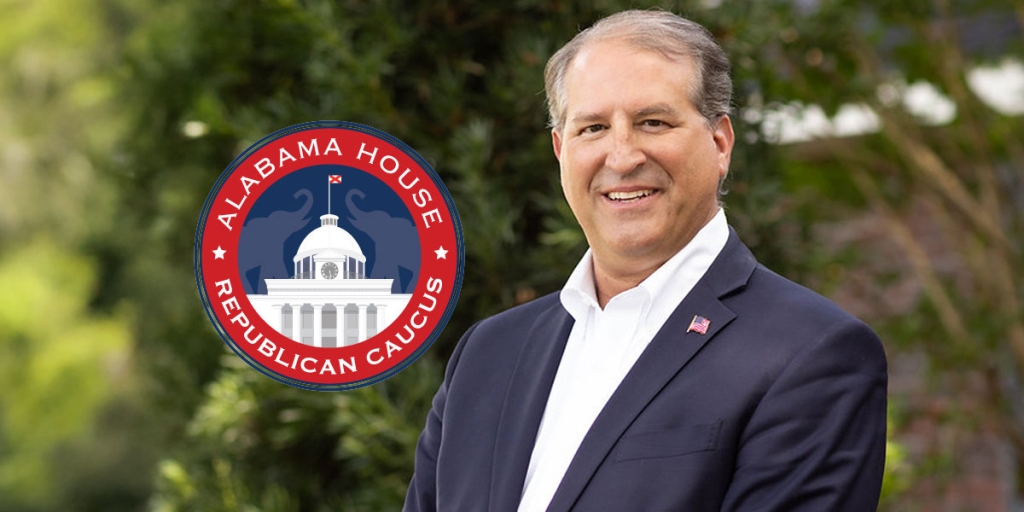Legislation that would be transformative for the Alabama Farmers Federation made its debut before state lawmakers on Wednesday during a public hearing about a proposal to enable the farm organization to offer its members and their families a form of health coverage, known as a farm bureau health plan.
Similar plans are already operating in ten other states, including neighboring Tennessee. The Federation and the bill’s sponsor, State Rep. David Faulkner, says the concept could reduce health coverage costs by 30% to 60% for self-employed farm families who often fall into a coverage gap.
Faulkner’s HB477 has amounted from a fierce behind-the-scenes political battle that came up short during the 2024 legislative session. In the time since, ALFA has held countless informational meetings with lawmakers and mounted public visibility campaigns to make their case.
During the initial public hearing in the Alabama House Health Committee, where no vote was taken, Faulkner (R-Mountain Brook) reported that process has yielded feedback and compromise from groups with reservations about the plans being offered.
“The Farmers Federation is not looking to change Alabama’s healthcare market. Hear me out. This is not a plan for everyone,” Faulkner said. “This doesn’t even save the nation or the state in healthcare – but it is an option for some – and it could mean economic survival for small business owners and farmers.”
“Tennessee has been doing this since 1947, they have 138,000 covered lives in a state that has 7.2 million people. They’ve been doing it since 1947 and 138,000 covered lives in that time period. So it’s not for everybody, and it doesn’t fix everything, but it is a good option, and it’s a tried and proven option.”
RELATED: ALFA, Blue Cross Blue Shield launch dueling public affairs campaigns over farm bureau health plans
The Alabama Farmers Federation is a nonprofit membership organization, separate from Alfa Insurance, a separately-chartered and regulated insurance company that shares historical and leadership ties with the Federation, but operates independently in the commercial insurance market.
Alfa Insurance provides products such as auto, home, and life insurance and is subject to state insurance regulations.
HB477 pertains only to the Alabama Farmers Federation and would authorize the Federation itself, not Alfa Insurance, to offer a non-insurance health benefit plan to its members under a separate legal and regulatory framework.
The bill outlines several additional guardrails from the version introduced by State Sen. Arthur Orr (R-Decatur) earlier in the session and the year prior.
The plans must include basic benefits like hospitalization and emergency care, follow an annual actuarial review, and provide an internal complaint process monitored by the Alabama Department of Insurance.
The Federation would be required to reinsure its risk through a third party, and premiums would be subject to a 1.3% state tax.
Faulkner said these additions to the bill are a byproduct of negotiations with industry and provider groups within the healthcare system. He thanked Blue Cross and Blue Shield of Alabama, the Business Council of Alabama and the Alabama Hospital Association for communicating their concerns.
Some of those concerns still exist.
Danne Howard of the Alabama Hospital Association spoke on Wednesday urging changes to the bill that would ensure the Federation is offering health coverage acceptable to providers across the state.
“The one thing that we are still having conversations about are our concerns with there being annual and lifetime limits on the amount of coverage that an individual may have, one serious injury, one serious illness, costs mount up quickly,” Howard said.
Howard also warned that without explicit enforcement authority for the Department of Insurance, any protections in the bill could be rendered meaningless. While the bill now includes provisions like prompt payment requirements, she noted without that enforcement, hospitals and providers would be forced to seek relief through the courts.
A representative from Tennessee Farm Bureau Health Plans stated their contracts have no annual or lifetime limits. He described the contracts as “evergreen” — meaning customers could not be cancelled or be subject to higher rates for individual health changes.
Ted Hosp, representing Blue Cross and Blue Shield of Alabama, used much stronger language to describe their opposition.
“Let me start by recognizing that at the end of the session, ALFA is going to be allowed to sell a health plan that is not required to comply with nearly any of the laws or regulations that traditional health insurance policies are required to comply with,” Hosp said.
“Most important, they will not be required to cover people with pre existing conditions like cancer survivors or people with diabetes and high blood pressure, we think it’s a mistake to allow just one company to sell an unregulated health insurance plan, operated entirely out of Tennessee, using United Health Insurance to make decisions on which claims will be paid and which will be denied.”
“But we realize this is going to happen, and therefore it is entirely reasonable, in our opinion, for you to include some very basic protections, none of which interfere with ALFA ability to sell the product or make a profit,” Hosp said.
RELATED: BCBS of Alabama: What they’re not telling you about Farm Bureau Health Plans
He outlined four amendments that Blue Cross believes are essential, including protection from cancellation or premium hikes due to illness. He argued once a person is accepted into a plan, they should not lose coverage or face rate increases simply because they get sick.
As well as inclusion of essential health benefits like mental health and prescription drug coverage, which are not currently required under HB477, plan value transparency measures, and enforcement authority from the Alabama Department of Insurance.
Members of the Alabama House Health Committee also raised concerns about the protections being afforded to both consumers and provider that involve particular details in the bill’s language.
“My late husband was a farmer, and I’ve been an insurance professional for 48 years. I applaud ALFA for doing this. I am 1,000% in favor of competition. I know we need it, guys — I am on your side. But as a 48 year insurance professional, I deal in these policies every day. Words have meaning, and I’m worried about the words,” State Rep. Frances Holk Jones (R-Foley) said.
“We talk a lot about agents and them being employees, because I understand under the ALFA business model, the agents, the clerical, the adjusters, are all employees of ALFA, but part of the details are it never really says in the bill if they are licensed through the Department of Insurance.”
“This business of ‘We want to protect ALFA and we want to take care of y’all, and we need competition, and people need to decide’ — that’s wonderful — I’m in favor of all of that. But the words matter and the words we’re planning on it give me great concern,” Rep. Holk-Jones said.
No vote was taken on the bill on Tuesday. It could be voted out by the committee as early as next week. Wednesday was day 18 of the 2025 legislative session.
“I can look you all in the eye and tell you I have spent six months on this bill and that this is by far the most comprehensive Farm Bureau plan in the country,” Faulkner said.
Grayson Everett is the editor in chief of Yellowhammer News. You can follow him on X @Grayson270.













